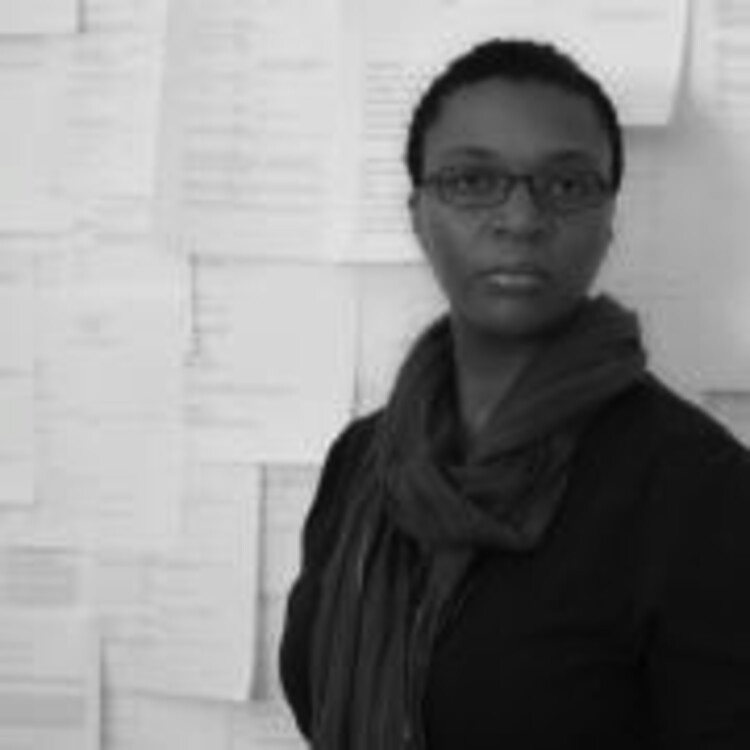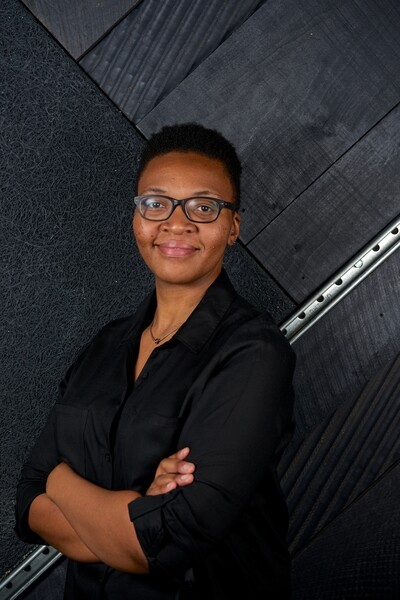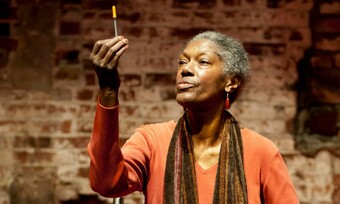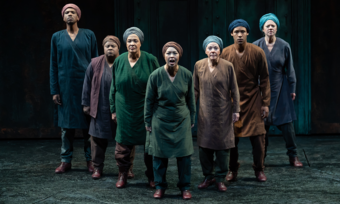Ka-Boom
When I decided to apply to an MFA program it was 2006. I was living in NYC, working as a paralegal, and feeding a budding sneaker addiction. Even though I sat in a cubical checking briefs, I still “felt” like a playwright. Fortunately, the Van Lier Fellowship at New Dramatist provided that sensation. At that time, nothing else in my life looked scribe-rly. I wasn’t writing. I didn’t have a bunch of plays on my bookshelf—nothing. And gasp—I had purchased an LSAT study book! I considered law school. It didn’t occur to me that I veered from the path. I embraced the “I speak therefore I am” practice, but my thinking, my commitment, resided in law.
My “mind=blown” moment arrived when I participated in the Composer Librettist Studio at New Dramatists. During the final session, facilitator Ben Krywosz asked us to list our values, in order of importance. I scribbled my items without hesitation. Playwriting was in the top three. Law didn’t make the list at all. I was pretty hyped—on paper I was living the dream! Krywosz called time. Pens went down. He then suggested we examine our bank statements and our calendars. “How do you spend your money and where do you spend your time?” He believed these responses would reveal our actual values, as opposed to a list of perceptions. My second response revealed money spent on sneakers, room and board, and eighty-hour workweeks at the firm. My original list reflected wishful thinking, not reality.
Ka-Boom.
An MFA program felt like an ideal solution. I needed the time and space to write and the resources to see and hear what I had written. But I refused to go into debt. Writing plays doesn’t pay enough to survive, so why should anyone go into debt to “study” it? No thank you. This narrowed my options, but I knew it was a smart decision. The terminal degree also provided the option to teach at the college level.
I graduated from The Yale School of Drama in May 2011.
A degree does not guarantee a career.
A degree does not guarantee a career. A playwriting program is not the yellow brick road that leads to productions, an agent, or accolades. A degree is a single brick in the foundation. Yes, it can open certain doors, and garner invitations to certain circles. It can make the journey a bit smoother, but it isn’t the mode of transportation. The structure of an MFA program doesn’t (and never will) simulate the realities of American theater. It can’t feel the roar of success or the frustration of empty theater seats. It doesn’t account for peculiar personalities. It doesn’t provide reason or proof. It is simply a chance, an opportunity to study the craft of playwriting. Knowing and understanding that before you go makes post-graduate life a little less confusing.
MFA programs can isolate you from your ideal audience and your community. At the end of the day one audience may be just as good as any other, but consider your ideal audience and put in the effort to connect with them.
A word of caution: MFA programs can isolate you from your ideal audience and your community. At the end of the day one audience may be just as good as any other, but consider your ideal audience and put in the effort to connect with them. An old school theater maker once said to me, “August Wilson was our last Black American playwright. All subsequent writers most likely attended MFA programs, which means they were trained by white people to write plays that white theaters will produce for their white subscribers.” I don’t agree with the initial point—there are some truly exceptional post-Wilson writers working today. But I do believe it’s important to consider the variety of unique voices that emerge from certain programs. Read the work written by current faculty, recent graduates, and, if possible, current students. Does it speak to or connect with you in some meaningful way? The school may have a “name” that opens doors, but do you respect the work that it helped create? How is one writer similar to her classmates? Different? Also consider the long-term body of work of the alum. What was the first post-graduate play produced? What is the most recent one? How has that writer progressed since leaving graduate school? Again, each career path is different, but it’s important to consider these realities.
So why even bother pursuing a degree? For me, the answer arrived as a ka-boom moment. It became one of my many investments in my artistic self. For you, it may be entirely different. Ultimately, the pursuit is (or should be) a personal journey. Brilliant peers will (or should) surround you. Exceptional teachers and mentors will (or should) challenge you, and encourage you. There will be major headaches, tantrums, triumphs, and duds. You will discover a new collaborator, a fellow traveler, a nemesis. Can someone curate that experience outside of an academic institution? Absolutely. How? Well … I’ll let someone else write that post.











Comments
The article is just the start of the conversation—we want to know what you think about this subject, too! HowlRound is a space for knowledge-sharing, and we welcome spirited, thoughtful, and on-topic dialogue. Find our full comments policy here
I got so much from reading about your journey. Thank you for sharing this!
Congratulations ! Also, how are you making a living at present? Hopefully you are able to support yourself as a playwright?
Yale's tuition is $33,500 - I think most people would go into debt paying for that. How were you able to avoid that?